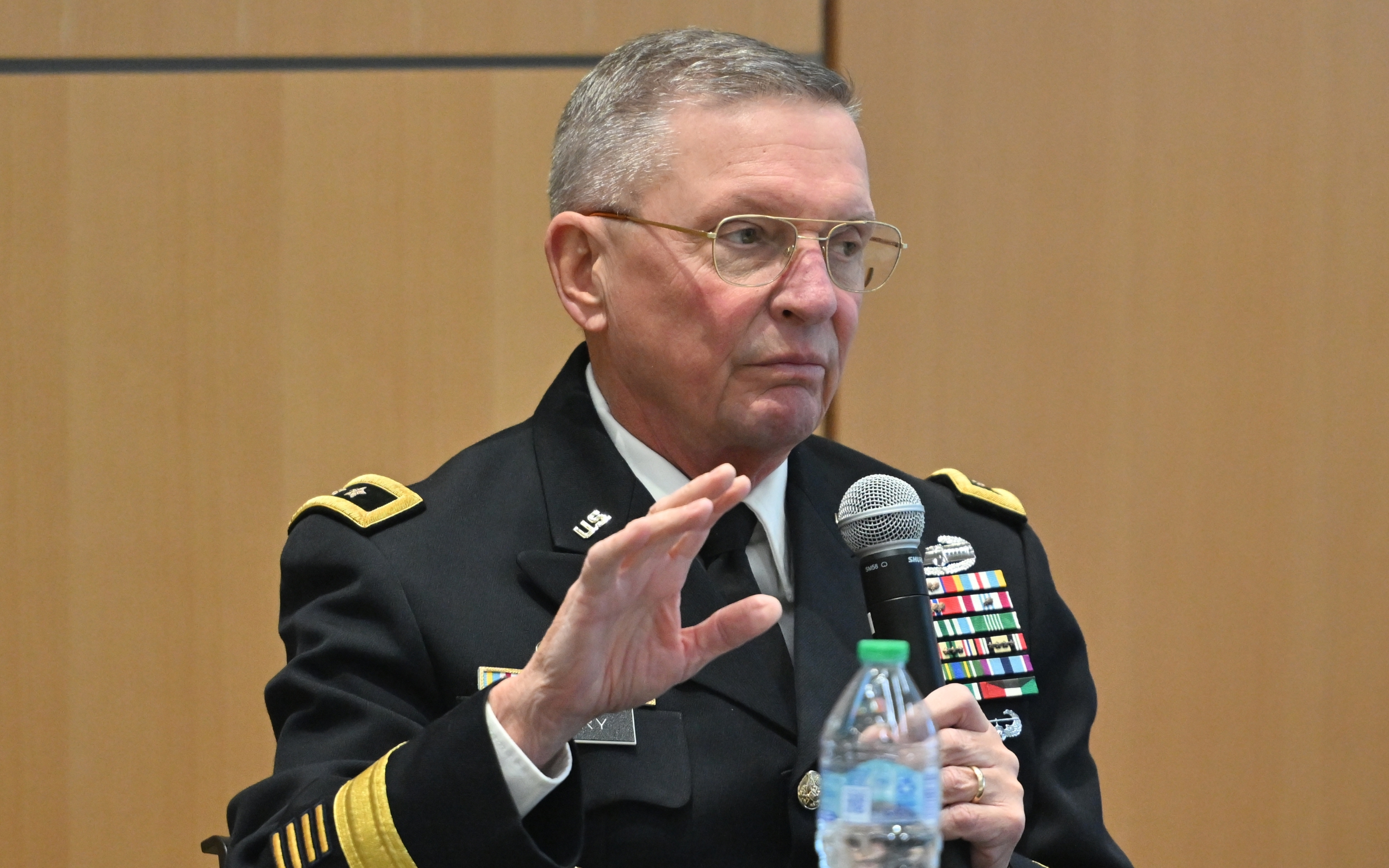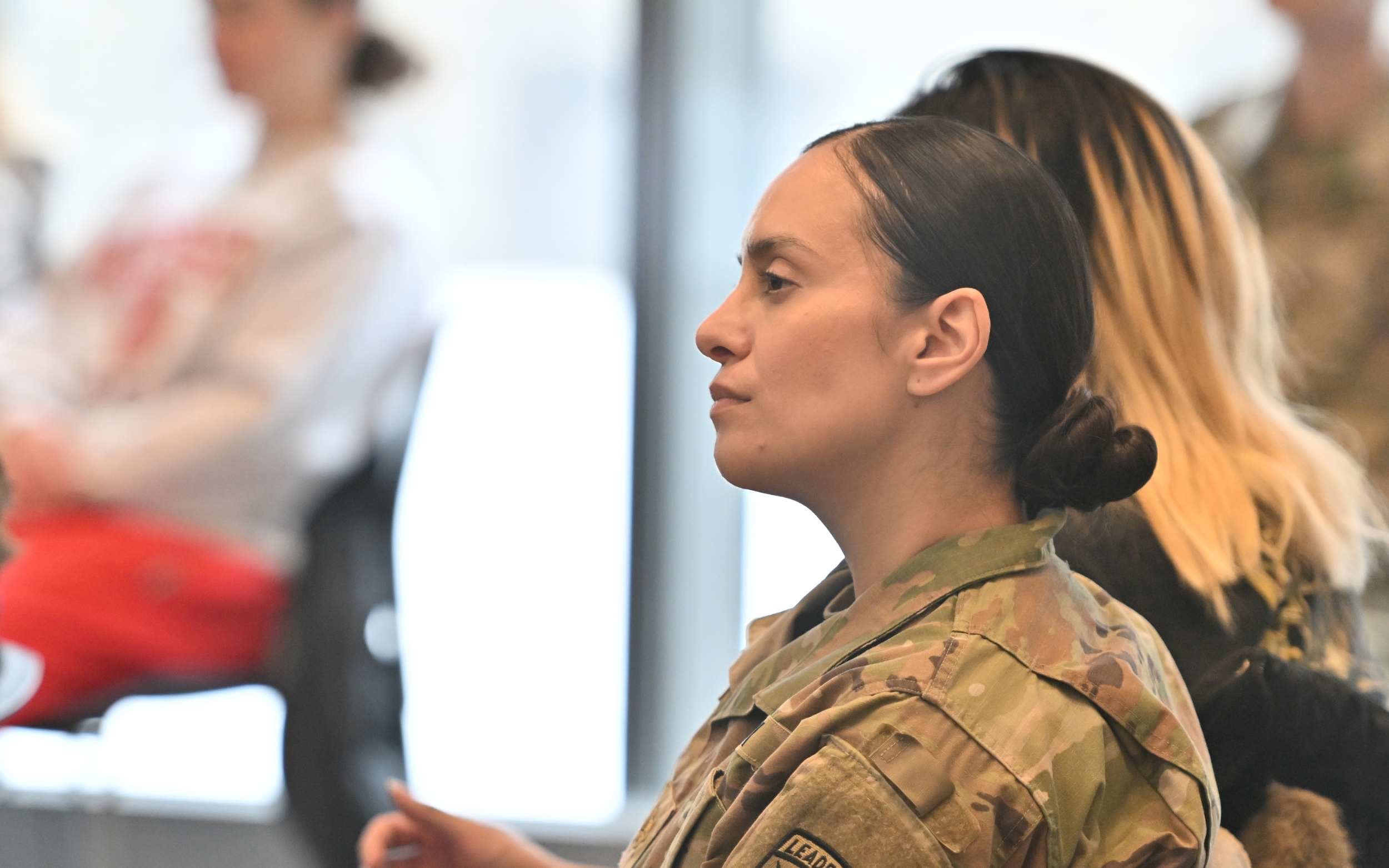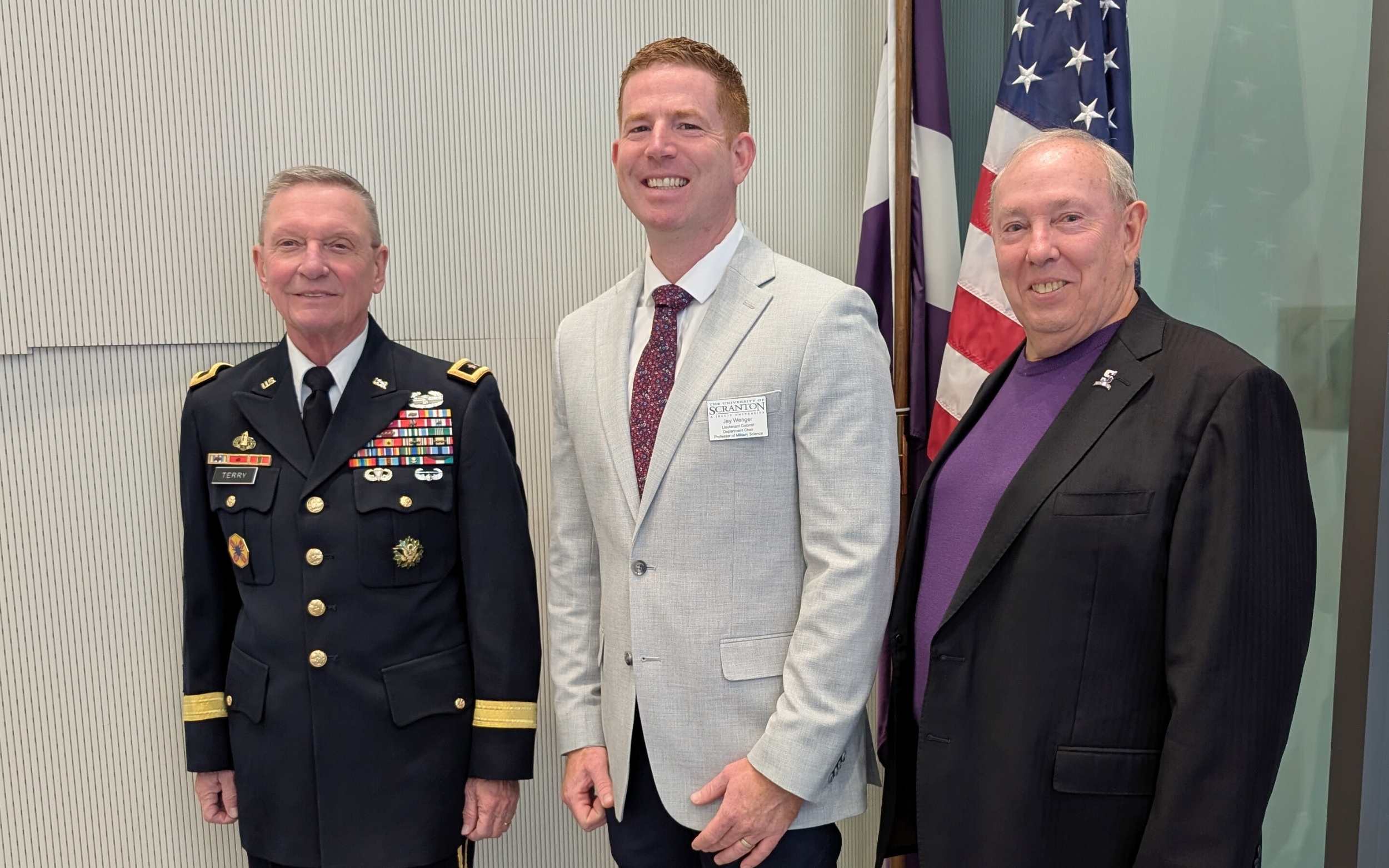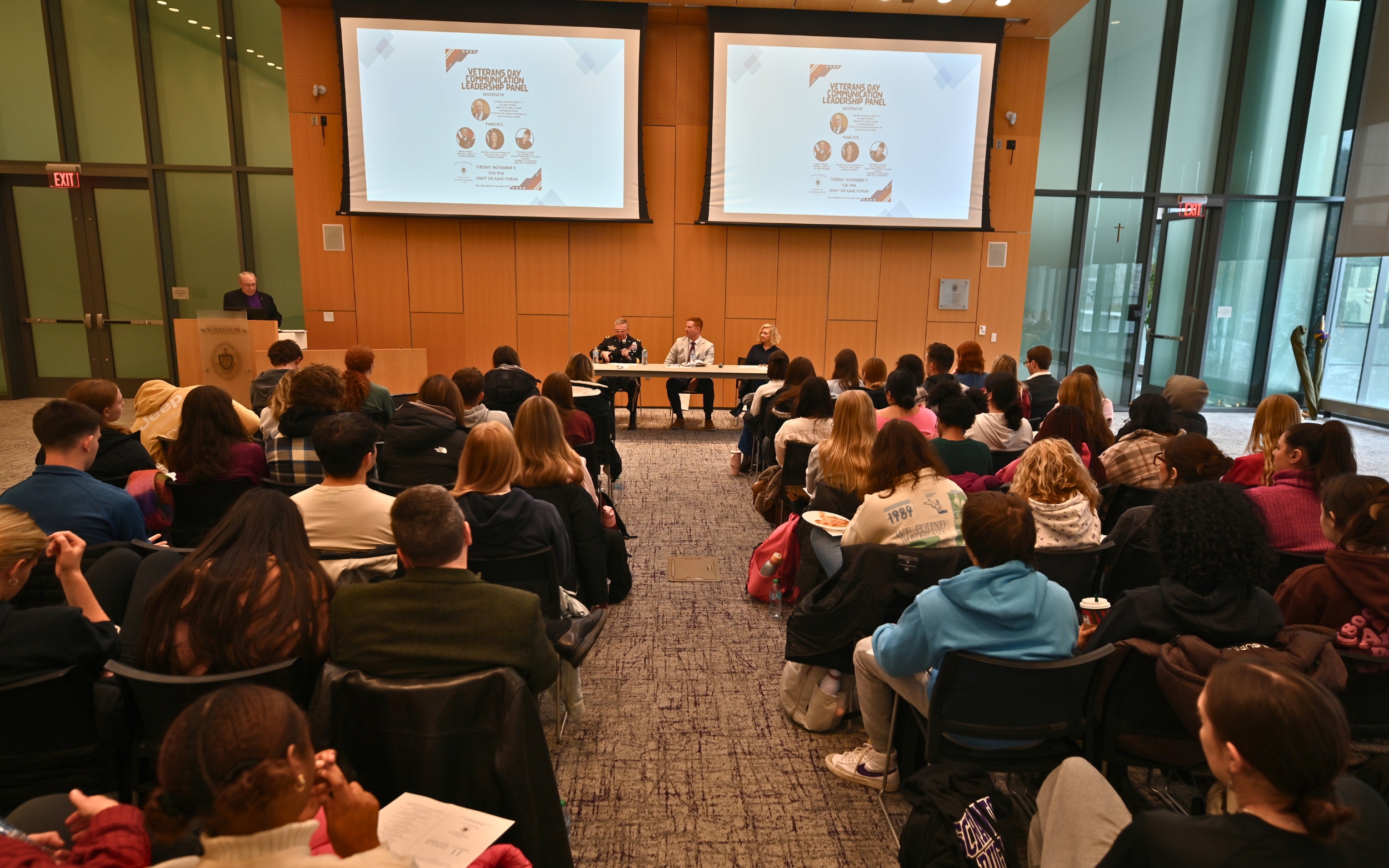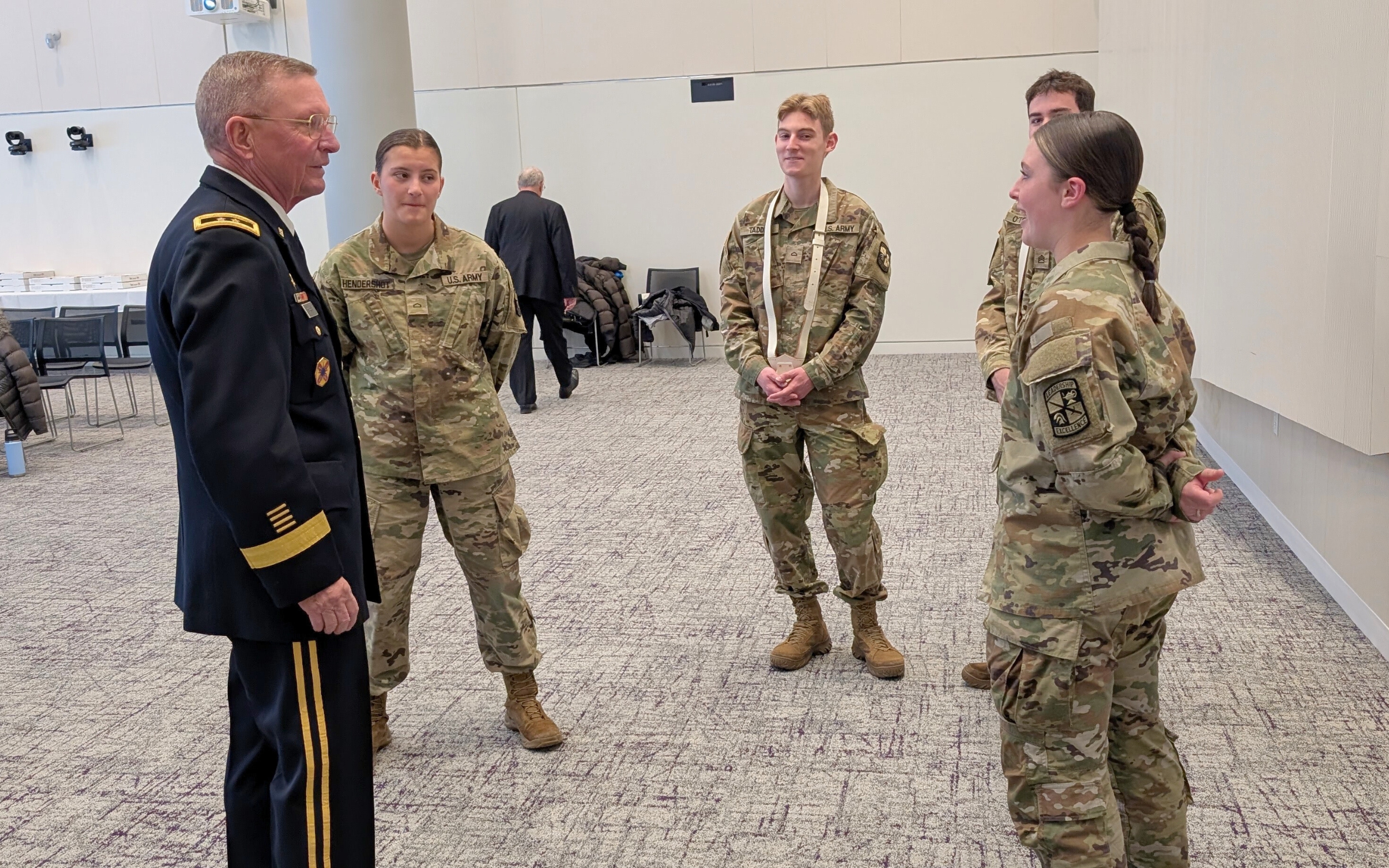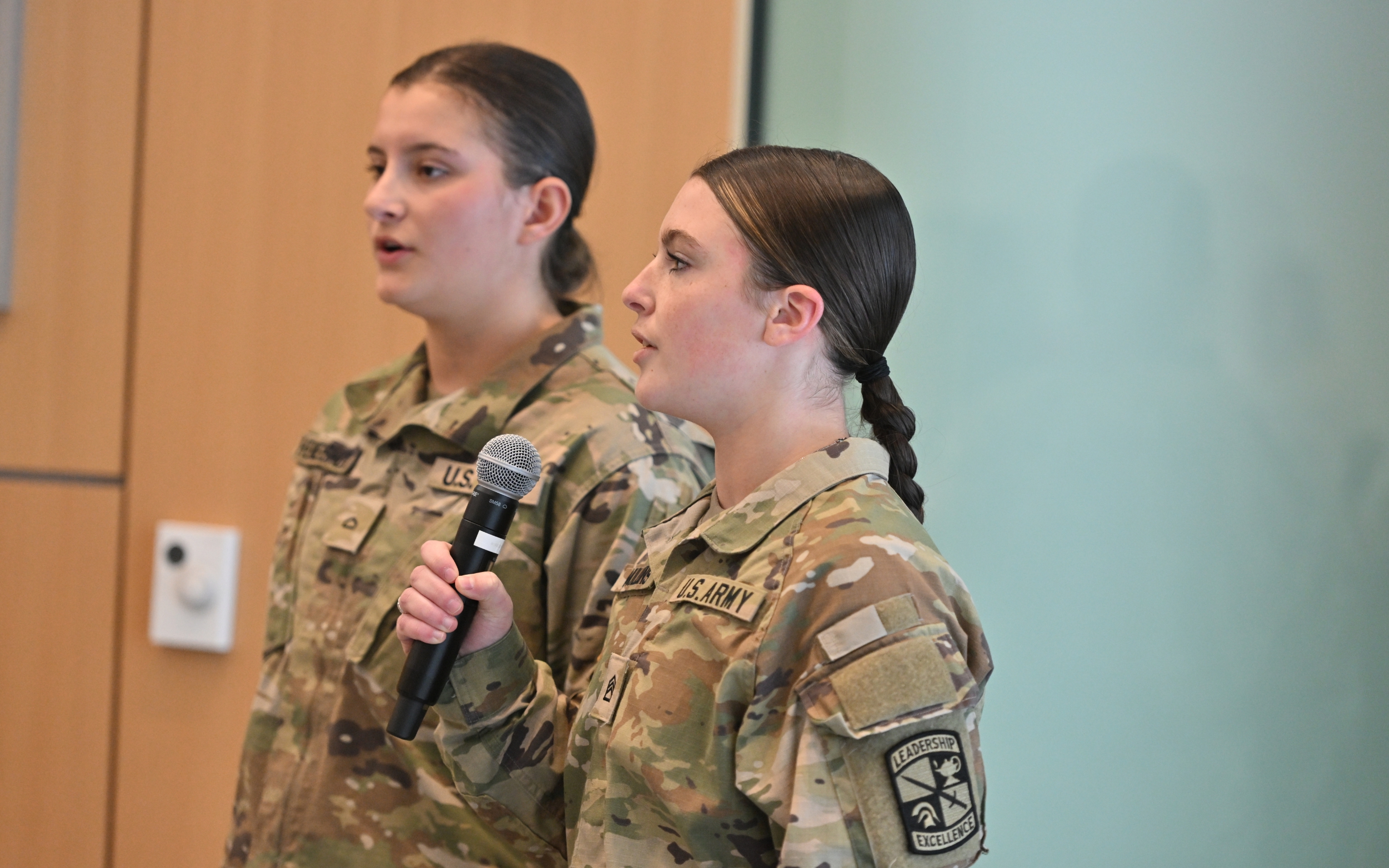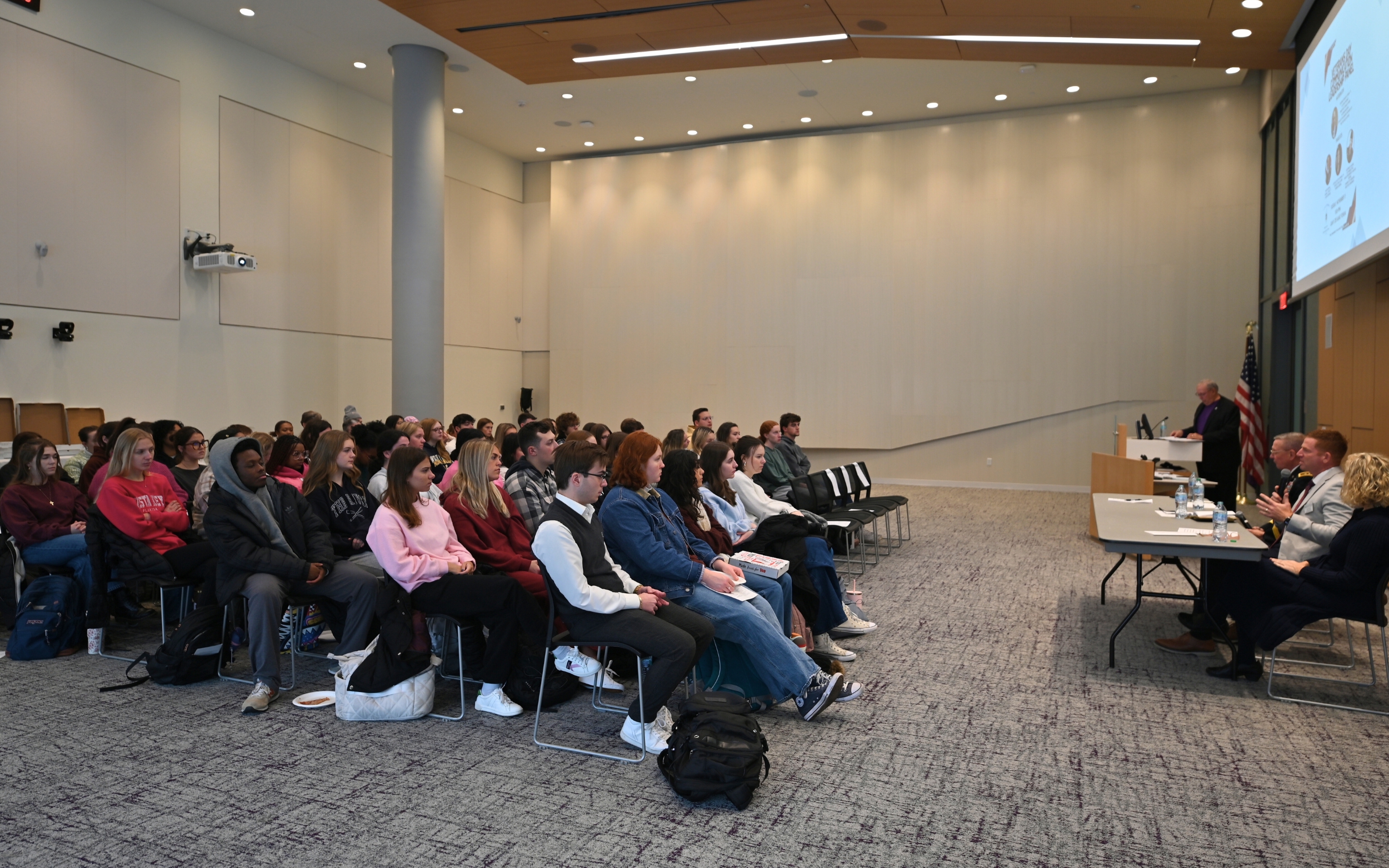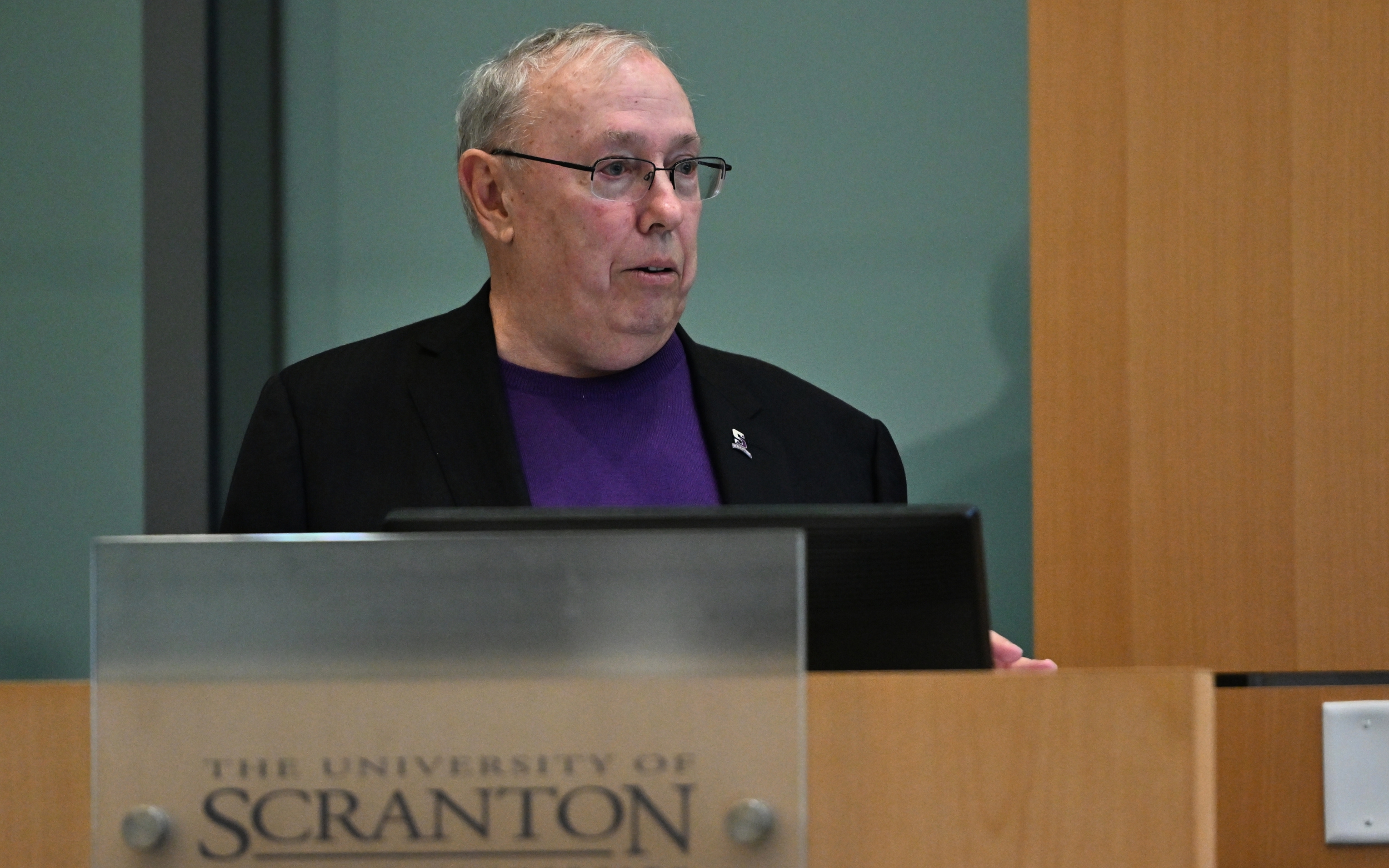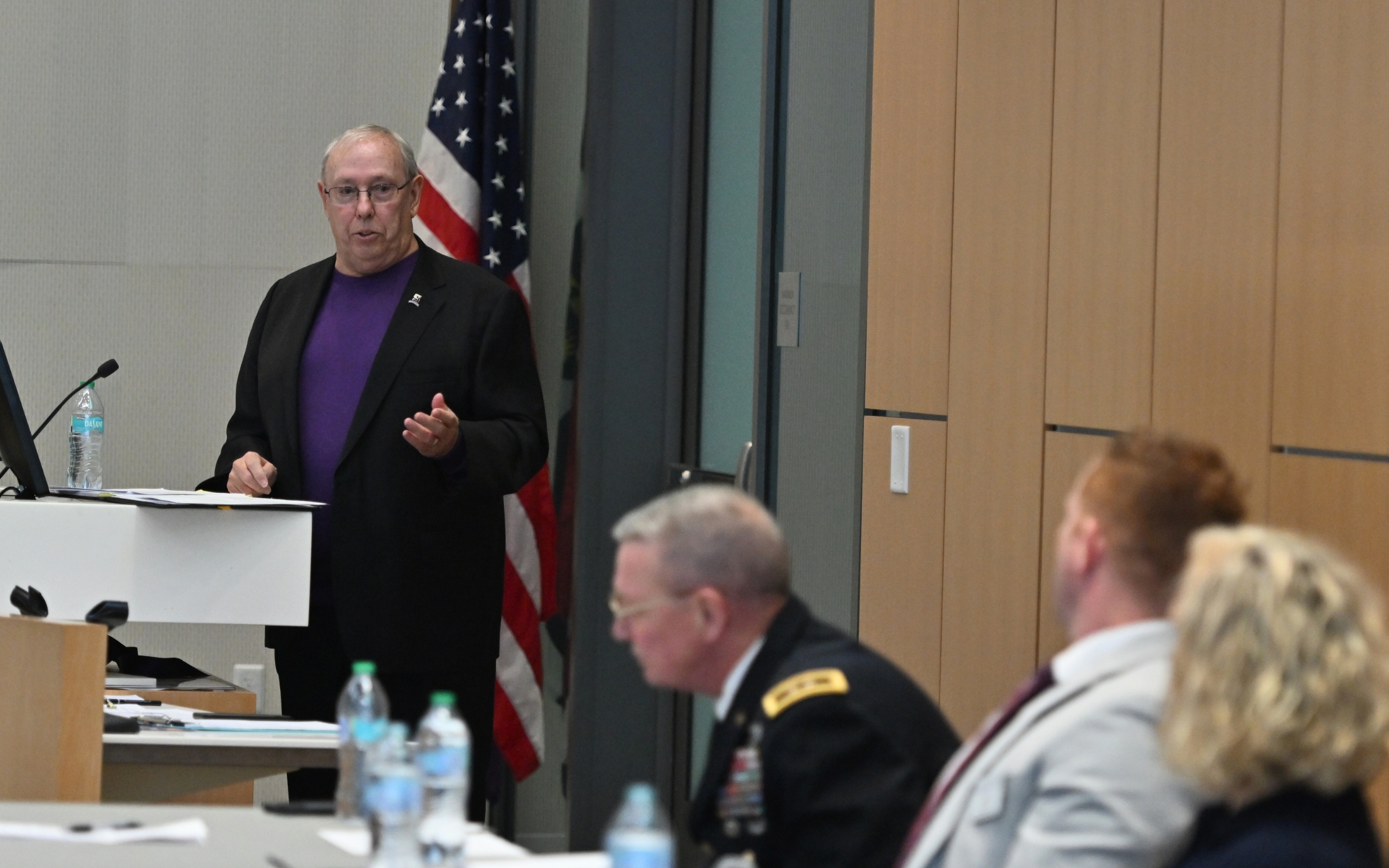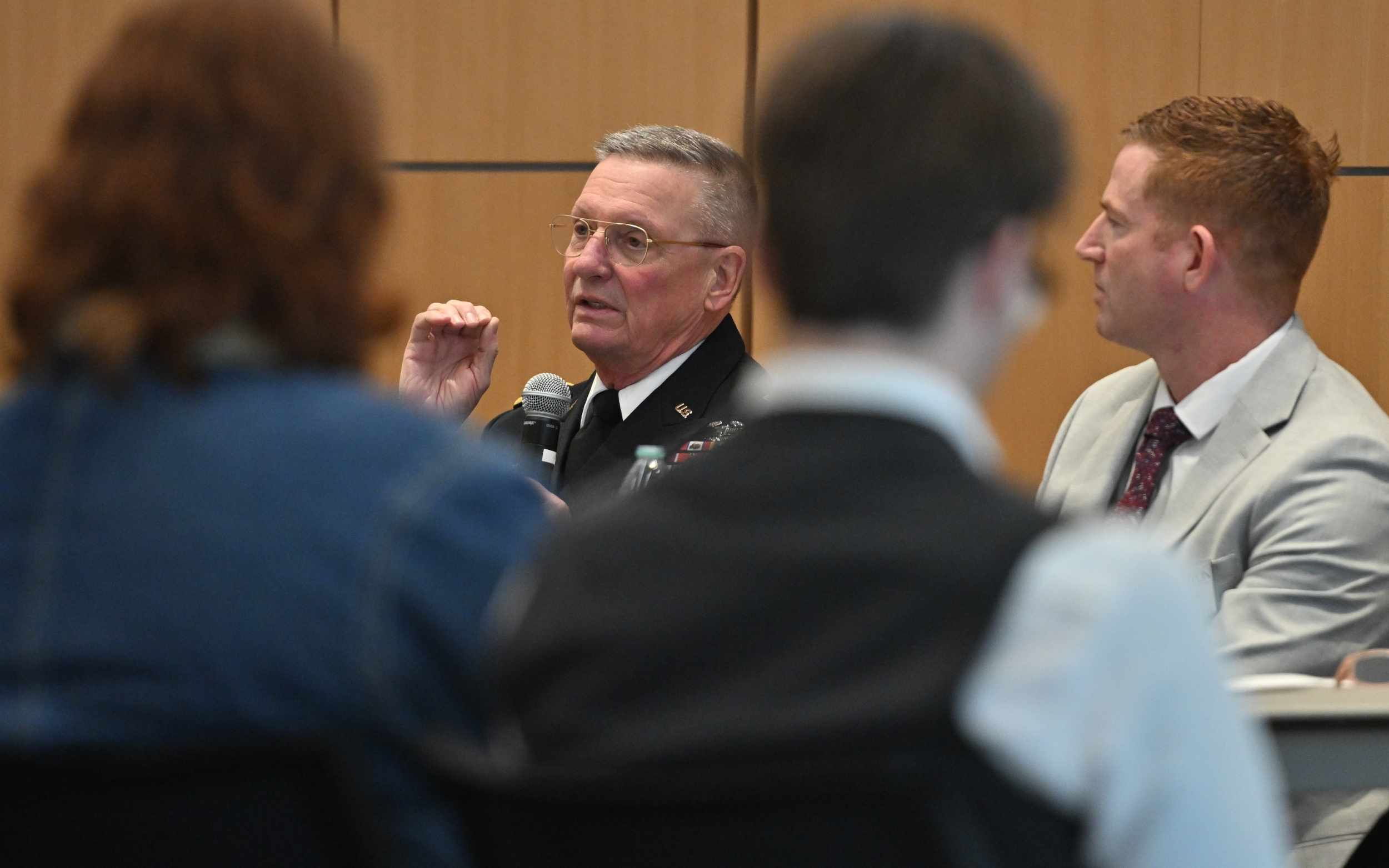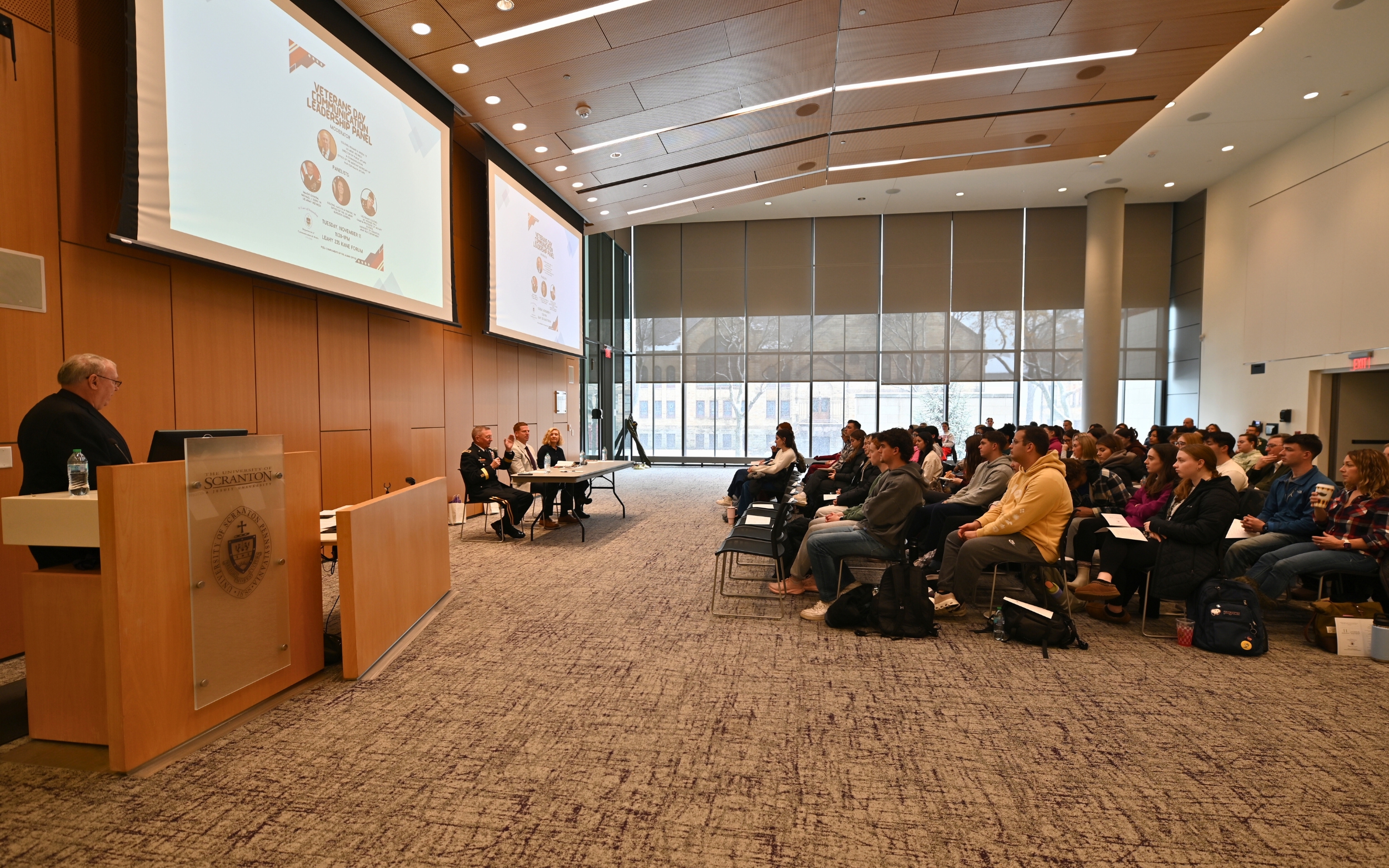Jesuit Education Benefits Military Communication Leaders
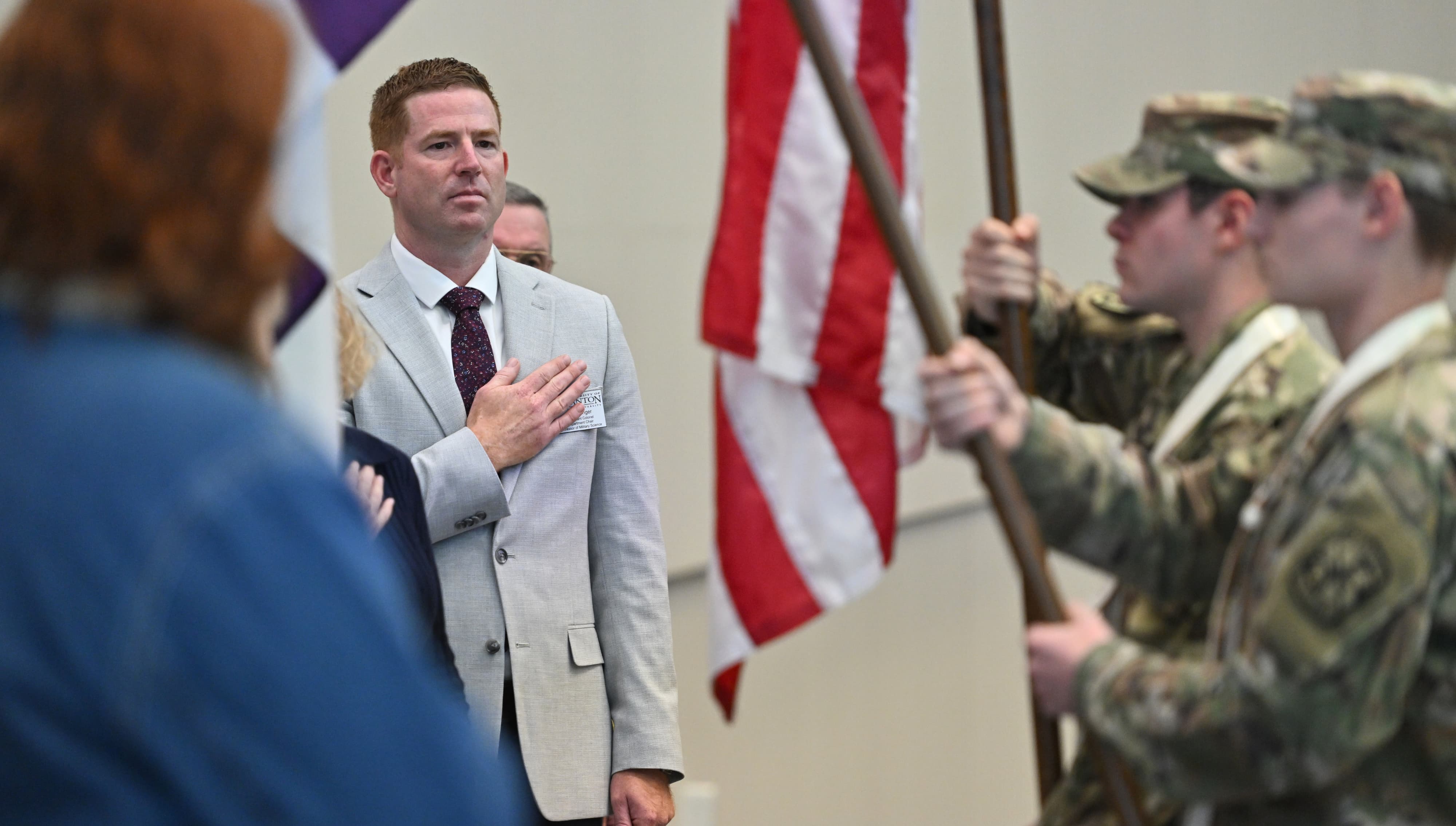
The Jesuit principles instilled at The University of Scranton — critical thinking, ethical responsibility, a commitment to justice, among other things — will benefit professionals in any line of work.
A trio of military personnel reflected upon the Jesuit teachings at a Veterans Day Communication Leadership Panel, organized by Scranton’s Department of Communication and Media. Col. Richard H. Breen, Jr., ’77, director of public affairs and communications at the office of the assistant secretary of war for health affairs, served as the moderator. Panelists included Maj. Gen. Michael J. Terry ’79, U.S. Army, retired, and Lt. Col. Jay Wenger, professor of military science at The University of Scranton.
“The names that I would mention are all on buildings around campus,” Col. Breen said. “I was commissioned by Father William J. Byron. I had dinner many a night with Father Joseph Rock. Father Ed Gannon conducted the marriage ceremony for myself and my wife.
“Learning from your teachers and from the Jesuit values here — it’s something serious, it’s something that carries with you for the rest of your career.”
Col. Breen and the group spoke in front of nearly 100 guests — most of them students — during the hourlong panel and Q and A with the audience at the Kane Forum in Leahy Hall.
“Nobody prays for peace more than somebody that’s seen war,” Lt. Col. Wenger added. “In every corner of this world, there are lovely and wonderful people out there. The toughest environments you go into, the places where the Jesuit values are not, that is where they’re needed most. The morals, the ethics, the values that all of you have and that are fostered here — bring them to corners of the world. …
“When you are in these tough positions, you want somebody leading in the position that has (strong) values.”
The panelists spoke about numerous other items, including the value communications professionals can add to an organization such as a military command.
“The English language is a precise language when used precisely,” Maj. Gen. Terry said. “We have to be very careful when we use words. One of the most dangerous statements I ever got was … ‘Sir, I understand.’ Do you really? The importance of giving your intent, giving the opportunity for subordinate elements to develop their complementary plans and then coming back and back-briefing the higher level — that’s when you find out if you really understand.”
Maj. Gen. Terry and the panelists also offered advice to students who will soon enter the job market, emphasizing the importance of being on time, composed and respectful.
“Understand where you’re at,” Maj. Gen. Terry said. “As a communications person, you’re not the boss, you’re not the commander, you’re not the president. Where do you fit as a cog in that? And how can you support the mission? Be a team player. I think that’s the biggest thing. You want to be considered a team player among your peers because you’re going to have peers, and those peers may still be with you years down the road.”
The event also included a posting and retirement of the colors by the University’s Reserve Officers’ Training Corps (ROTC) Color Guard. Cadets Michael O'Toole, an undeclared major from Middle Village, New York, and Evan Taddeo, a biology major from Havertown, presented the colors. The national anthem was sung by ROTC cadets Kiley Mullins, a nursing major from Northford, Connecticut, and Haley Hendershot, a nursing major from Blue Point, New York. It concluded with remarks from Stacy Smulowitz, Ph.D., associate professor and chair of the Department of Communication and Media.
“To our students,” Dr. Smulowitz said, “I hope you leave here today with a renewed sense of purpose no matter your choice of career. Remember the example set by our distinguished veterans. The values they embody — integrity, selflessness and an unwavering commitment to their country — are all values we can all strive to uphold in our daily lives.”



